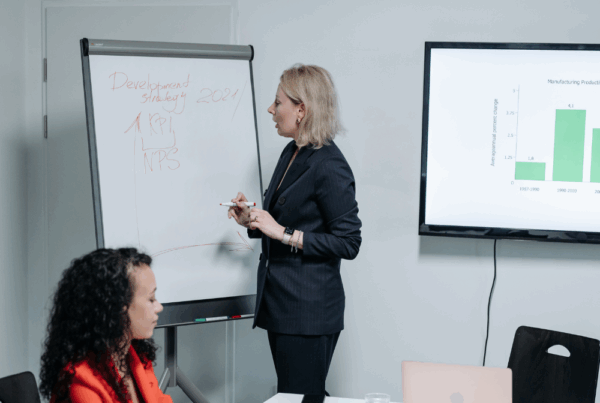ESG – Environmental, Social and Governance
Towards the end of last year, I wrote about the challenges that the SME sector faced when it looks at the Net Zero challenge – https://wearemap.co.uk/cop26-and-the-sme-net-zero-challenge
At that time ACCA were hoping that as an industry, accountants could “galvanise support” and lead the way in helping SME’s understand what they could do in terms of addressing their own issues of sustainability and climate change.
At the same time, our friends at the Corporate Finance Network published their Tracker Survey, reporting data from accountants representing 16,305 SME clients, which reported that 46% of their responses stated that lack of time and resources to implement strategies was as a key reason that steps were not being taken, and the same number again cited lack of expertise and understanding of where to start with sustainability plans, which are holding them back as a business.
Despite the clear need for help, the survey also found that just 4% of clients requested support from their accountant on sustainability issues.
The importance that consumers now place on the environmental credentials of the businesses they buy from has never been higher and we have seen this only accelerate during the pandemic, with consumers demanding that companies, and their leaders, do more to protect the environment.
Research just released from Capgemini concludes that “A significant majority of consumers (79%) are changing their purchase preferences based on sustainability. This contrasts sharply with the 36% of organisations who believe consumers are willing to make this change in their choices or preferences based on social or environmental impact. And 77% say their sustainability approaches increase customer loyalty and 63% have seen a revenue uptick. There is a significant opportunity to gain market share given this growing action or intention of consumers to switch based on sustainability.”
For any small business, but for those of you in the Digital and Creative sector, delivering great products and services though innovation is no longer enough. These innovations must be through the lens of environmental sustainability and those agencies that can illustrate their commitment to a sustainable future will be the more successful organisations, both in terms of growing clients and the recruitment & retention of talent.
This can be a big issue and knowing where to start isn’t always easy…but let’s be straight here. This isn’t going away, and your business will be affected.

So, if having the big idea is tough, then what small steps can you take?
One opportunity that the pandemic has created is that of a hybrid working model.
This means that not only can you take a proactive approach to the energy use, and cost, of your office space, but the knock-on effect is that less commuting and business travel is now taking place and if you look at Manchester as an example, there is evidence of increased bicycle use.
You could even promote this more within your business by implementing a cycle to work salary sacrifice scheme within your agency.
With less staff in the office at any one time, as we see with many clients now, it has also become easier to look at your everyday waste.
Recycling is easier the less it stacks up and with more and more remote working the office consumables, and their packaging, will be less.
With the new Plastic Packaging Tax that comes into effect in the UK this month, then that packaging may also just have become more expensive.
If there is one thing you do this year, then make a member of your team your Environmental, Social and Governance (ESG) ambassador or champion.
Help them establish policies, objectives, and milestones to achieve short and long-term goals, embedding an ESG strategy as an integrated part of how you work.
In their report, Shaping the Sustainable Organisation, Accenture concludes that:
“Our analysis shows that leadership teams that build sustainability into the DNA of their organisations are better able to deliver financial value and wider stakeholder impact. In fact, those with the most deeply embedded sustainability management practices outperform peers by 21% on both profitability and positive environmental and societal outcomes.”
That level of outperformance can’t be ignored. Look closely at every aspect of your business and your more comprehensive supply chain to identify where environmental savings could be made. From business owners to every staff member, becoming a greener business must have everyone’s input. Making these essential changes will ensure your business is coveted by growing numbers of paying customers.







